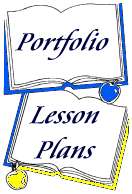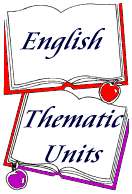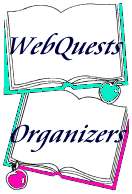![]()
|

Constructing
Effective
Thesis Statements and Research Questions
There is no one way to come up with a good thesis statement or research question. Everyone has their own rituals and techniques. But you need to learn to pick and refine a topic before figuring out the focal point of your paper: your thesis statement or research question. You just can not afford to waste time wandering aimlessly around the library, or even worse, in your paper. You need to know what your ultimate purpose is and what you need to know and do to get there.
There are two main types of research essays: the argumentative and the analytical paper. For the argumentative paper, the research paper is built upon the thesis statement; for the analytical paper, the paper is built upon the unresolved topic or what is called the research question.
Thesis
As Kathy
Livingston's site points out, thesis statements are basically made up of
your topic and a specific assertion about that topic, therefore,
For example, if you were going to write a paper on music, you might go through this process to get to your topic and, ultimately, your thesis.
-
You start with "radio" as your initial topic
-
You refine it to "music-listening" (as opposed to talk shows, commercials, contests, etc.)
-
You refine it further to "music-listening while studying" as opposed to other contexts where people would listen to radio music
-
Now you look at what the guidelines your teacher gave you for this paper, and you decide that a good term paper would likely look at the personal impact of the topic on student grades
-
You finally decide your paper's thesis statement should be about how listening to music while studying enhances academic performance
The people at the University of Michigan-Dearborn Online Writing Center, had some other questions you can ask yourself:
- What is a gut feeling you get
when you think at or look at your topic?
-
"I could never get through studying without music on!"
-
- Why do you think you
feel like that?
-
"If I didn't have music, I'd fall asleep or get bored. Music keeps me motivated, engaged, and alert."
-
- What qualifications or
conditions might be needed to make your response more objective and
specific, especially for skeptics?
-
"Oh yeah, I listen to instrumentals; I should probably mention that. The tempo of the music is probably important or I would fall asleep."
-
- Is there any other information
you will need to include that's critical to the comprehension of your idea?
-
"I may need to include some definitions. And I should definitely point to the fact that mine is opposite to popular opinion."
-
Research Question
The best technique for coming up with a research question is to do a lot of
brainstorming that keeps breaking up your topic into subunits and/or specific
conditions--all by repeatedly asking yourself questions. The journalist's 5Ws
can be helpful here.
Below is the imaginary evolution of a sample research question. As you read it, think of it as a kind of inventive "dialogue" you might have had with yourself once you had chosen radio.
- Is it the radio itself I'd
like to look at?--light, portable, easily worn close to the ears
- Maybe I could look at the effect of walkmans on hearing
- Or am I more interested in the content of radio?
- So what are the different
parts of a radio program?
- Music, news, commercials, contests, sports broadcasting, talk shows
- What is it like to hear a sport but not see it? how does it change the spectator experience?
- I don't like sports--what
about music? Where do people listen to radio music?
- Jogging (walkmans)?
- Do they run farther because of it?
- In the car?
- Does it ever contribute to accidents?
- At the dentist's office,
at work?
- Are people more satisfied at their jobs?
- At home? Where at home? In the bedroom? Who listens to it? I do! Who am I?
- Jogging (walkmans)?
- A student! That's it! When do
I listen to music? When I study!
- Does that impact my grades?
Just keep asking yourself questions about words and other questions. There are half a dozen possible research questions embedded in the exercise above. Finding one that interests you can't be too hard.
When you do come up with a good one on your own, make sure it passes The "So What?" Test or you cannot pass Go and collect your 200 research dollars.
Don't worry though; remember that at this point in the process, your thesis or question will be tentative. It may change after you do research or as you write and that's perfectly okay. But even if it turns out to be a popular view or question, your purpose should come from your mind first, not library books.




